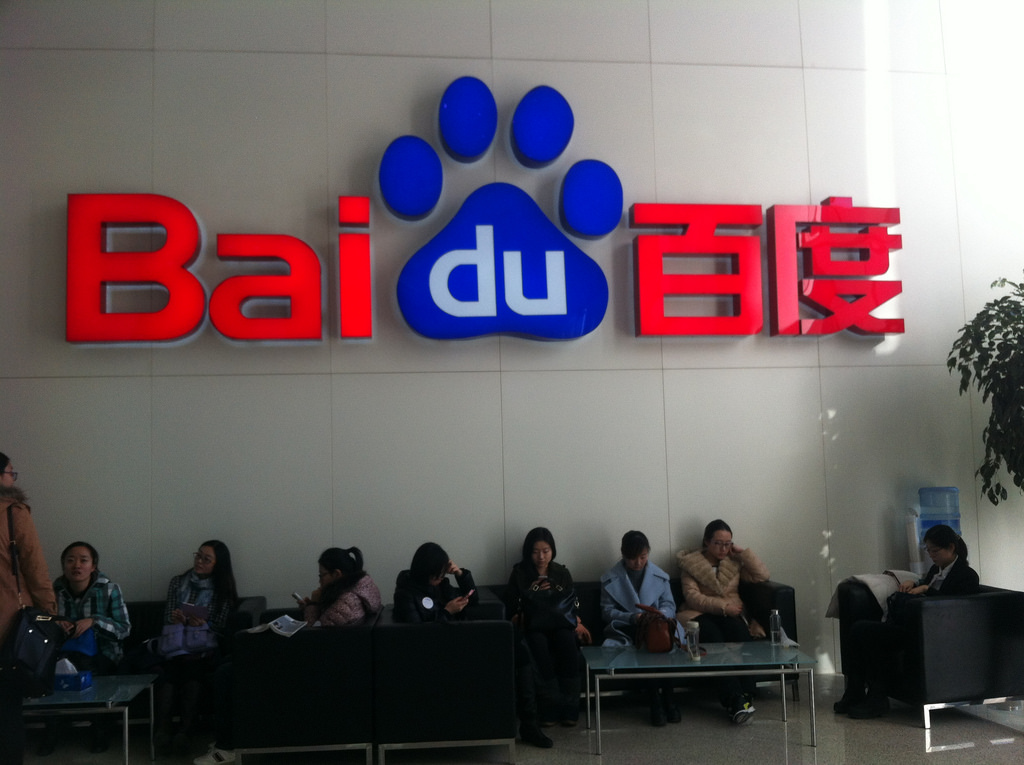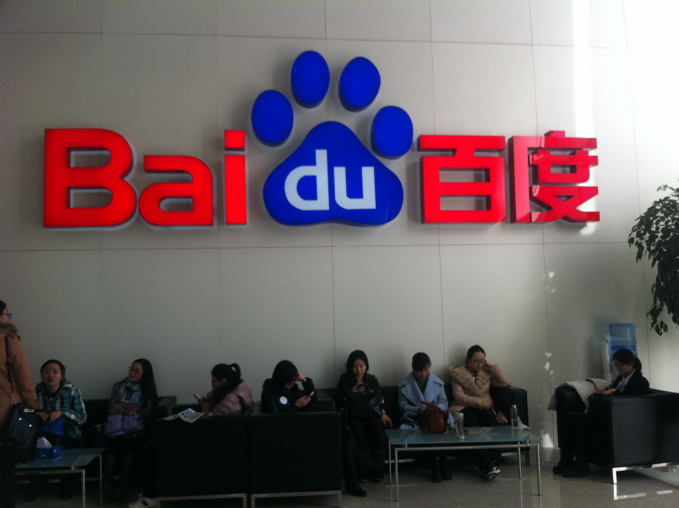In 2016, 91% of Baidu's revenue came from Internet marketing. However, this unit’s revenue grew only by 0.8% to $ 9.3 billion for the year due to two factors. First, Chinese regulators forced Baidu to remove particular advertising (in particular, health care goods and services) classified as misleading. The authorities paid such a serious consideration because of the death of a student who used a dubious cure for cancer, advertised by that time on Baidu.
Several years ago, competing search engine Qihoo 360 accused Baidu of the fact that the latter derived 30% of advertising revenue from unfair advertising of medicines and medical services. Consecutive sweeping purge resulted in the fact that number of Baidu’s active online marketing customers fell by 18.6% for the year and in the IV quarter amounted to 452 thousand. Revenues then decreased by 8.2%.
Secondly, Baidu exchanged 45% of the shares of Qunar online travel agency belonging to him for a 25% stake in its larger competitor Ctrip. This facilitated merger of the two companies and put an end to the price war, which caused the margin to decline. As a result, however, Baidu's marketing revenue fell temporarily. Excluding the impact of the share exchange, revenue in this segment in 2016 increased by 5.4% in 2016, and total revenue - by 11.9%. Taking into account the exchange, the company reported an increase in revenue by 6.3%.
Thus, Baidu's revenue growth is likely to accelerate again once the company copes with the consequences of the fight against unfair advertising and the exchange of Qunar’s shares. According to analysts, Baidu's revenue this year will grow by 21%. At the same time, the average revenue per client in the Internet marketing segment will increase by 7.9% to 65.3 thousand yuan ($ 9,405) per year. This can compensate for the temporary slowdown in the audience growth.
Yet, there is one more problem. Baidu is investing too much money in expanding its ecosystem, linking online and offline services. The company is focusing on integrating taxi services, delivery services, online stores, mobile payments, video games, video and other services into monolithic "super-applications" such as Baidu mobile search application or Tencent's WeChat. The company aims to lure users into its applications and keep them there, make them dependent on their ecosystems. One of Baidu’s main competitors in this sphere is WeChat, so the technology giant is heavily investing to counter WeChat’s growth. That is why its operating profit, calculated not by GAAP, fell by almost 10% in 2016, and net profit decreased by 17%. This trend is likely to continue, as this year's profit will not change, and the next year is expected to bring 38% growth due to lower costs. Thus, massive investments in the ecosystem look feasible.
The level of Internet penetration in China is still 52% compared to 89% for the US. Hundreds of millions of mobile users are not yet connected to 4G networks, and this is a huge undeveloped market for Baidu and Tencent. Tencent is leading the segment of social networks and games, and Baidu is reigning in the search and cartographic service. Currently, the market does not like Baidu, and its shares fell by 8% for the year. However, those investors who buy its shares now, can be rewarded in the next few years.
source: fool.com
Several years ago, competing search engine Qihoo 360 accused Baidu of the fact that the latter derived 30% of advertising revenue from unfair advertising of medicines and medical services. Consecutive sweeping purge resulted in the fact that number of Baidu’s active online marketing customers fell by 18.6% for the year and in the IV quarter amounted to 452 thousand. Revenues then decreased by 8.2%.
Secondly, Baidu exchanged 45% of the shares of Qunar online travel agency belonging to him for a 25% stake in its larger competitor Ctrip. This facilitated merger of the two companies and put an end to the price war, which caused the margin to decline. As a result, however, Baidu's marketing revenue fell temporarily. Excluding the impact of the share exchange, revenue in this segment in 2016 increased by 5.4% in 2016, and total revenue - by 11.9%. Taking into account the exchange, the company reported an increase in revenue by 6.3%.
Thus, Baidu's revenue growth is likely to accelerate again once the company copes with the consequences of the fight against unfair advertising and the exchange of Qunar’s shares. According to analysts, Baidu's revenue this year will grow by 21%. At the same time, the average revenue per client in the Internet marketing segment will increase by 7.9% to 65.3 thousand yuan ($ 9,405) per year. This can compensate for the temporary slowdown in the audience growth.
Yet, there is one more problem. Baidu is investing too much money in expanding its ecosystem, linking online and offline services. The company is focusing on integrating taxi services, delivery services, online stores, mobile payments, video games, video and other services into monolithic "super-applications" such as Baidu mobile search application or Tencent's WeChat. The company aims to lure users into its applications and keep them there, make them dependent on their ecosystems. One of Baidu’s main competitors in this sphere is WeChat, so the technology giant is heavily investing to counter WeChat’s growth. That is why its operating profit, calculated not by GAAP, fell by almost 10% in 2016, and net profit decreased by 17%. This trend is likely to continue, as this year's profit will not change, and the next year is expected to bring 38% growth due to lower costs. Thus, massive investments in the ecosystem look feasible.
The level of Internet penetration in China is still 52% compared to 89% for the US. Hundreds of millions of mobile users are not yet connected to 4G networks, and this is a huge undeveloped market for Baidu and Tencent. Tencent is leading the segment of social networks and games, and Baidu is reigning in the search and cartographic service. Currently, the market does not like Baidu, and its shares fell by 8% for the year. However, those investors who buy its shares now, can be rewarded in the next few years.
source: fool.com



















